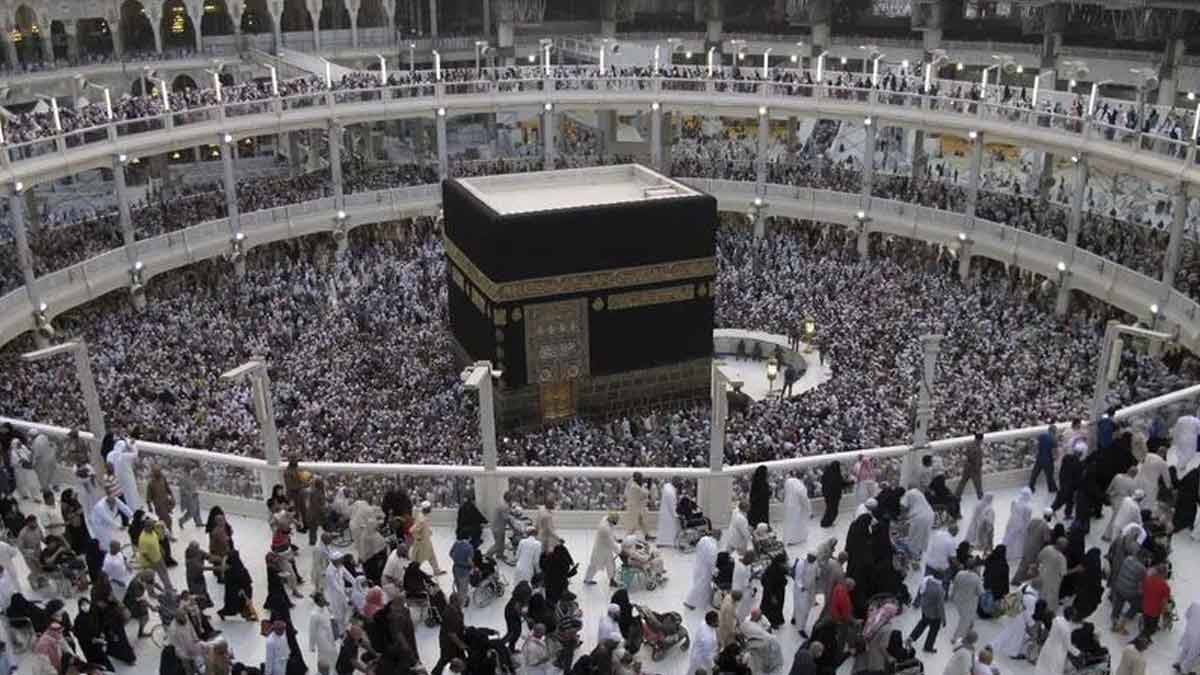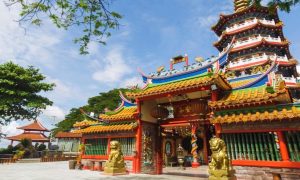A number of Malaysians are among the confirmed casualties so far at the annual pilgrimage to Mecca, which has seen over 2,700 people treated for heatstroke.
The official death toll from this year’s Hajj pilgrimage has surged to nearly 500, with the true figure potentially more than double that, as reports suggest up to 600 Egyptian worshippers succumbed to the extreme heat en route to Mecca.
Unofficial counts currently place the death toll at 1,170.
Authorities report that already-confirmed fatalities include 14 Malaysians, 165 Indonesians, 75 Jordanians, 35 Pakistanis, 49 Tunisians, 11 Iranians, and 98 Indians. The Jordanian Foreign Ministry confirmed an additional 27 Jordanians hospitalised and around 14 still missing.
The U.S. State Department verified multiple American fatalities but did not specify numbers. “We can confirm the deaths of multiple U.S. citizens in Saudi Arabia. We offer our sincerest condolences to the families on their loss,” a spokesperson stated, noting that consular assistance is available.
Dozens of Iranians have also been hospitalised due to heatstroke and other conditions, according to the Iranian Red Crescent.
A tally by CNN brings the latest official death toll to at least 480, and fears are that the actual toll may exceed 1,000.

Pilgrims faced dangerously high temperatures of up to 49°C (120°F).
Zirrar Ali, 40, who returned to London on Friday from his pilgrimage with his 70-year-old father, remarked in an interview with CNN that authorities did not provide sufficient water, shade, or medical support to pilgrims during the week he was there.
“To me, it felt like there are too many people, there are not enough medics, so they are just waiting for the worst of the worst to happen and then they will step in,” Ali said, adding that people passing out quickly became the norm.
Ali’s comments were echoed by another witness, 44-year-old Ahmad from Indonesia, who told reporters that he saw many people falling ill and even dying from the heat.
The death toll is expected to rise further, as Saudi Arabia and Egypt have yet to release official figures. Governments are only aware of pilgrims who registered and travelled to Mecca as part of their country’s quota, with fears of possibly significantly more deaths among unregistered pilgrims.
Egypt’s crisis unit, led by Prime Minister Mostafa Madbouly, will support the families of the deceased. President Abdel Fattah el-Sisi has also directed the unit to coordinate with Saudi authorities to facilitate the return of bodies.
The official number of Egyptian deaths stands at 28, according to an Egyptian cabinet statement. However, Reuters and other outlets report that as many as 500 to 600 Egyptians may have died.
Officials are working to gather an accurate tally of victims and missing persons, with discrepancies arising from the large number of unregistered pilgrims.
The Saudi Ministry of Health implemented safety measures including cooling stations along the official route, urging pilgrims to use umbrellas and stay hydrated. Despite these efforts, this year’s event was overshadowed by tragedy, raising questions over whether more could have been done to ensure safety.

This situation highlights the dangers for unregistered worshippers who, without Hajj permits, do not have access to official facilities. Among the dozens of Jordanians who died of heatstroke, at least 68 have been granted burial permits in Mecca, per family wishes.
Malaysia’s Minister for Religious Affairs, Dr Mohd Na’im Mokhtar, stated that most Malaysian pilgrims died from “heart disease, pneumonia and blood infection,” according to Bernama News Agency.
India’s Ministry of External Affairs announced the death of 98 Indian nationals due to “natural illness, natural causes, chronic illness, also old age.” Six Indian nationals died amid extreme heat on the day when Muslims gather at Mount Arafat, and another four died due to “accidents.”
Tunisia’s President Kais Saied fired the country’s minister of religious affairs, Ibrahim Chaibi, who acknowledged possible negligence in the care of pilgrims. “Negligence may have occurred… and whoever fails will be punished,” Chaibi said.
More than 2,700 people were treated for heatstroke, and hundreds have taken to social media to report missing loved ones.

This year’s Hajj has seen over 1.8 million participants, according to the Saudi General Authority for Statistics. Despite being a source of prestige and revenue for Saudi Arabia, the event faced significant challenges due to the high temperatures, with the pilgrimage falling in June, one of the hottest months in the kingdom.
Hajj officials advised pilgrims against performing the “stoning of the devil” ritual during certain hours and deployed medical units specifically for heatstroke.
Deaths are not uncommon during the Hajj, given the sheer number of pilgrims attending each year. Even still, some years stand out. Stampedes seem to occur fairly regularly, usually resulting in numbers ranging from dozens to hundreds being crushed. In 2015, however, a massive stampede resulted in the deaths of over 2,200 people.
Performing Hajj, one of the five pillars of Islam, includes rituals such as the circular procession around the Kaaba and the symbolic stoning of evil.

















